A few weeks ago, I realized that it has been 10 years since The Fictional 100 was published. Although the copyright page says 2009, the book was actually published early in January of 2010. I started this blog the following January, with the post “Some of my best friends are fictional…”. Since the decade mark on the book has passed, it seemed a good time to reflect, give thanks, and offer some new perspectives.
Let me start by saying that by far the best thing that happened to me upon the publication of this book has been the friendships I formed as I began to talk about my book with readers having many different interests (and a wealth of knowledge), especially those readers who were as fascinated by fictional characters as I was. Twitter was relatively new (founded in 2006 and by then gaining followers)–and it was certainly new to me–and I discovered an online community of readers, bloggers, writers, and artists, who were delightful to speak with and learn from. The friendships that have endured, both online and off, are a deep treasure to me because, as all passionate readers know, books are just the starting point for engaging with all of the important issues of life.
I am grateful to all those who spoke with me online and reacted to my list, my choice of characters, and my assessments of their influence in literature and in the world as a whole. I heard many suggestions for other characters I might have included. A few names kept coming up: Atticus Finch, Jay Gatsby, Elizabeth Bennet, Mr Fitzwilliam Darcy, James Bond, Harry Potter, Frodo and Bilbo Baggins. These are indeed plausible suggestions with much to recommend them. Some of them didn’t make my list because I had to let go of highly worthy characters in English and American literature to make room for the breadth and depth of international coverage of characters I was seeking. Others didn’t appear on my list because they violated one of my stated criteria for inclusion and exclusion: some were too recent, I believed, to evaluate long-term influence (Harry Potter), and some were not strictly human persons (the hobbits of Lord of the Rings). However, I stretched the point to include Superman, and I might well have done the same to include Frodo or Bilbo, who would have made wonderful and deeply “human” characters to write about, and influential ones for sure.
The character I most regretted leaving out was Kristin Lavransdatter, the heroine of her own novel trilogy set in 14th-century Norway; Kristin Lavransdatter is the masterpiece of early Nobelist Sigrid Undset. I love this book and this character, and perhaps I thought my own partiality for Kristin was too strong. I can’t really recall why she was not among those chosen for the list! In any case, I believe her importance is still growing, and I started a Scandinavian-themed blog, Northern Lights Reading Project, in part to have a place to write about her and do her justice. Rereading this massive, wondrous novel and writing about Kristin are still on my mental to-do list for the future. I will likely read the new translation by Tiina Nunnally, (left) to get a fresh look at Kristin’s saga. For collectors, the beautiful hardcover edition (right) published by Knopf in 1951 is still available. This is the one I first read with such pleasure and so many tears. Its graceful translation (by Charles Archer and J. S. Scott) is sweetly archaic, transporting one easily to a different time and place.
My thesis when I wrote The Fictional 100 was that fictional characters have a sort of “real life” in the world at large; for the most influential among them, that life continues well beyond the literary works that gave birth to each of them. Through this blog or its social media, I was able to chart some “sightings” of this extended life that emerged in the years after my book came out. I have enjoyed noting and reviewing new books, films, or television adaptations for Sherlock Holmes (both BBC’s Sherlock and CBS’s Elementary), Anna Karenina, Alice, Jean Valjean, Long John Silver, Scheherazade, and more. And this surely scratches only the surface, as it proved to be quite a task to keep up with all the news on these fictional luminaries!
Is there anything I would do or say differently in the book itself? For a few years now, I have been bothered by how I chose to conclude my chapter about the legendary figure of Eve. Here is my last paragraph:
Eve’s transgression is, paradoxically, a source of her enduring power and influence. In the words of one commentator, “without Eve, we all would still be sitting under trees, innocently dreaming.”[14]* This is why Eve ranks higher on this list than Adam. Although Adam arrived onstage first, Eve quickly stole the show. Her reaching for the forbidden fruit, however disobedient, demonstrated for the first time in the newly created world, a rebellious, independent spirit. She would decide for herself what to do, right or wrong. She might make excuses later, but she had to live with her choices. Adam may have been the first human being, but Eve was the first to be truly human. (The Fictional 100, pp. 24-25)
There it is. Logical on the face of it, and not so bad, right? What has gnawed at me was my too-ringing endorsement of Eve’s disobedient choice in the Garden of Eden. It matched, apparently, the received opinion about Eve: it ratified Eve’s agency, the freedom and independence of the First Woman, something women in the present-day world are still seeking to solidify. Yet, as I read it now, after some intervening years of Bible study (and perhaps more humility), my words, and especially the quote about “sitting under trees, innocently dreaming,” seem to sell Eden short. Adam and Eve before the Fall, as Genesis depicts them, were not passive dreamers but enjoyed a seamless harmony of purpose and mutuality of caring for Creation and each other, all conducive to their love as a couple and their love of God. Furthermore, they were in harmony with God and had pleasant converse with him–at the beginning. The prohibition to eat of the Tree of the Knowledge and Good and Evil safeguarded their trust in God and the goodness of his plan for Creation, whereas the Serpent distorted this goodness and obliterated her trust through his insinuating words with Eve. Her choice to listen to the Serpent’s words (not to mention Adam’s failure to contradict them) was indeed a freely willed decision–that was the way God had made these human creatures–but the consequences were a rupture to their Edenic existence and led to all manner of unexpected suffering.
Msgr. Charles Pope (of the Archdiocese of Washington, DC) recently had some choice words to say about this:
We should recall that God offered us the paradise of Eden with the proviso that we trust Him to teach us what is best. But we insisted on the knowledge of good and evil for ourselves and the right to decide what was right and wrong. We wanted a better deal than Eden. Here we are now in that “better deal.” Adam and Eve chose to eat from the Tree of the Knowledge of Good and Evil, even knowing that God had said it would usher in suffering and death. And we have all ratified their choice on countless occasions.**
We know what happened. Adam and Eve were swiftly ushered out of Eden and barred from returning where they might eat again of the Tree of Life, and so be immortal. Yet there was a hidden mercy in this banishment as Biblical scholar Mary Healy (for one) explains:
…death is where there is no praise of God, because a person is cut off from communion with the Author of Life (see Psalm 115:17). In this perspective God’s banishing Adam and Eve from the garden was actually an act of kindness. He did not want them to live forever physically in a condition of separation from him–a living death that would have been hell on earth (p. 38)***
God banished Adam and Eve, but not before he promised that one of Eve’s descendants would “bruise” or crush the head of the Serpent (see Genesis 3:15), an intimation from the Beginning that reconciliation and return might yet be possible.
Earlier in my chapter, I discussed the role of Mary, the Mother of Jesus, as “the Second Eve,” the one whose obedience would outweigh and undo the disobedience of Eve with all its deadly consequences. I ended that discussion with the thought that “there would be no ‘Second Eve’ without the First One, the one who disobeyed God” (The Fictional 100, p. 24). That would have been a more salutary note on which to end my treatment of Eve and her influence. She was utterly necessary to explain where we are now, but thankfully, she is not the last word.
In the last 10 years, the world has changed, and I have changed. But my gratitude for my readers and my friends is constant. I can’t thank you enough.
Notes
*Dorothée Sölle and J. H. Kirchberger, Great Women of the Bible in Art and Literature (Eerdmans, 1993), p. 14.
**Msgr. Charles Pope, “Why is it that we can endure great pain but only a little pleasure?” Community in Mission blog post, January 28, 2020.
***Mary Healy, Men and Women are from Eden (Servant, 2005).
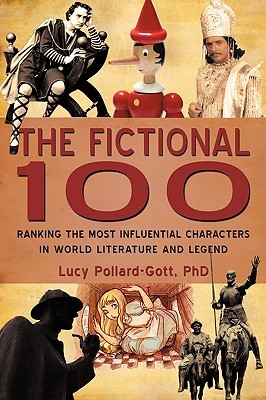
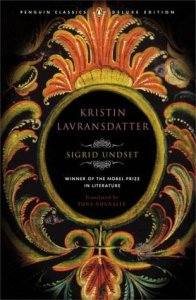
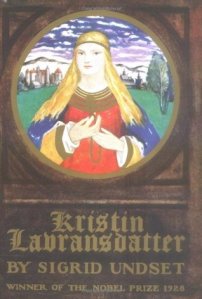
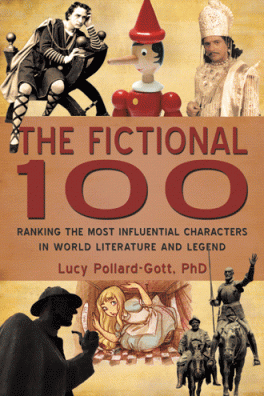













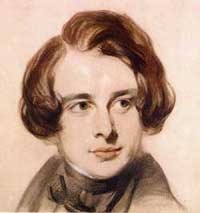
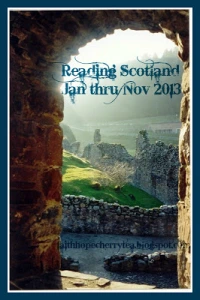
Recent Comments